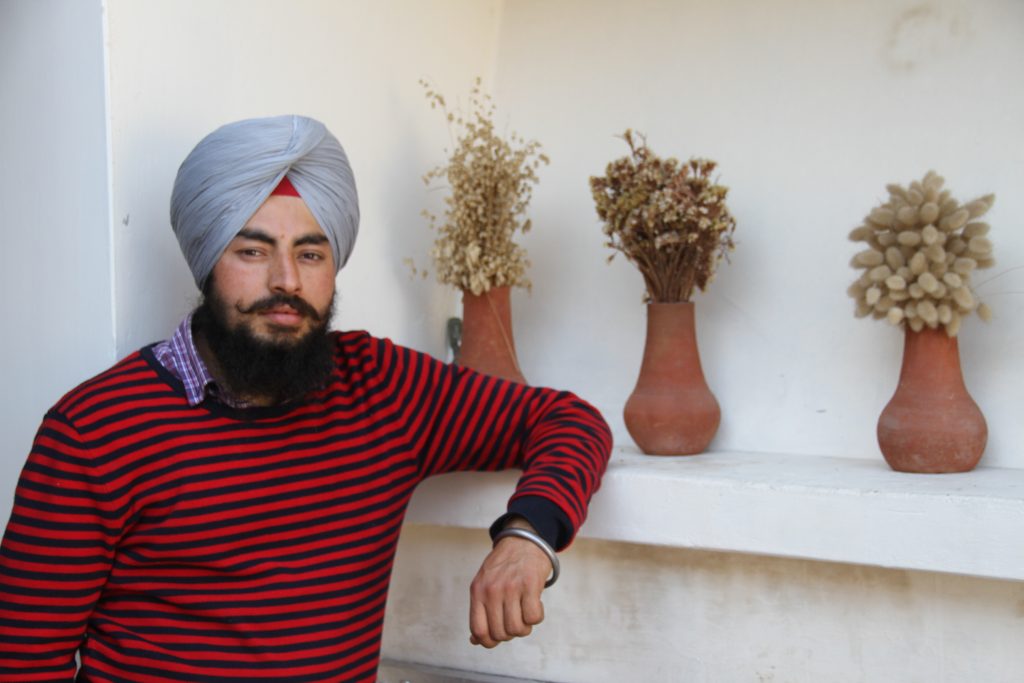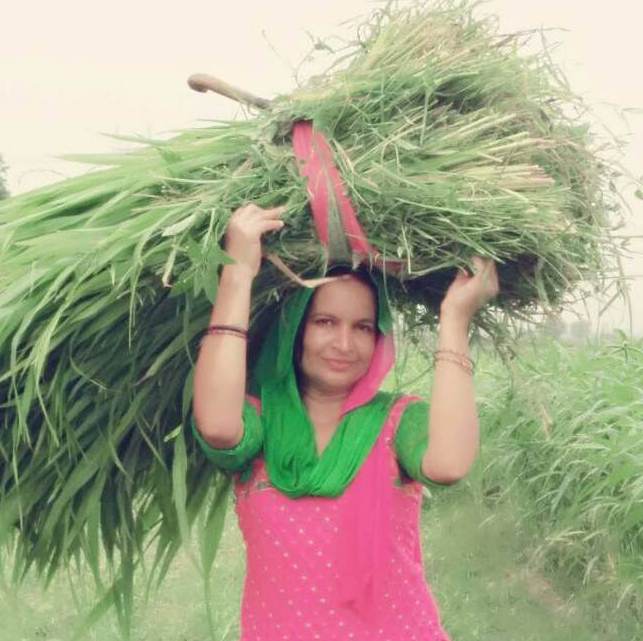A farmer who conquered high ground at an early age- Paramjit Singh
Living according to nature is a big thing in itself. Whatever we eat or drink today is all given to us by Mother Nature. It is upon us to keep it this way only. If we follow its fundamental rules, we will never get sick and lead a healthy life.
A farmer, Paramjit Singh, residing in Katahri village near Ludhiana, tends to preserve the gift of nature and nourish it. It is not easy to connect with nature, but it is essential to protect it for the future.
He fell in love with nature so much that he quit his job to serve it in the right way. He used this to cure a lot of diseases such as Blood Pressure, Diabetes, etc.
A person, who truly loves his work and is passionate enough, starts doing it in a fun way to enjoy himself. Therefore, he got training in various courses and decided to work with Indigenous (Desi) seeds. Working with indigenous seeds such as Ragi, Kangani, etc., took him to a platform where he became an inspiration for others.
While I was working in a Millet research centre, I came to know about the seeds of Ragi and Kangani. I then started doing research on these seeds- Paramjit Singh
He started growing Ragi and Kangani on the fields as an experiment. Later, he was so impressed by the results that he decided to grow indigenous seeds at his own level and pursue business in the same.
As the business started to grow, we started visiting Mela, and from there, we got a lot of recognition- Paramjit Singh
His friends helped him in the process; they worked in a group and visited different places for marketing. He had 3 acres of land near his village, where he also grew vegetable seedlings. He has a Pannu Natural Farm named business there and various farmers visit it for buying the seedlings.
The problem arose when Paramjit had to make people aware of the indigenous seeds and organic farming. Most of the people from his village had the mindset that they are doing cultivation for a very long time, and Paramjit is not capable enough to tell them anything about the farming culture. Even after such obstacles, he never gave up and started to grow his business and promote it to a higher level.
He imported the seeds and a Ragi plant when he started the business, and now that plant is being grown on several acres. Paramjit went to Hyderabad for training and, after that, started working on seeds in Punjab. He did research on the seeds and started to produce new seeds, making new products out of them. Starting from the production to the packaging, everything is done by him alone. While Paramjit does this work, his friend has his own machine for making designs for his products.
When we started producing various items, we made a group and registered it through ATMA- Paramjit Singh
He made the following products:-
- Pearl Millet flour (Bajre da atta)
- Pearl Millet biscuits (Bajre de biscuits)
- Pearl Millet porridge (Bajre da dahlia)
- Finger Millet flour (Ragi da atta)
- Finger Millet flour (Ragi de biscuit)
- Biscuits of Green Ragi (Hari Ragi de biscuit)
- Beetroot Powder (Chukandar da powder)
- Desi shakar
- Jaggery
- Suhajana da powder
- Desi kanak diya seviya, etc.
Paramjit does everything with his own hands, from sowing seeds to selling the products. He believes that the work done by ourselves gives us more satisfaction than relying on others. He can do marketing from his home through social media platforms, but he chooses not to and goes outside and does everything on his own.
Today, Paramjit Singh is on such a stage that everyone comes to him to get information about the indigenous seeds. Apart from that, he guides people about natural farming also. People know him by his work more than his name.
He is awarded various awards, such as the Young Farmer award on district-level and more, from different universities for his work and passion. Paramjit Singh also gets multiple opportunities to visit exhibitions and is more prevalent in South India as he is the only farmer in Punjab who started indigenous seed cultivation and also educates others.
The plants get the natural fertilizers from the soil itself. I have never used chemical fertilizers- Paramjit Singh
He has proved that we should not waste the gifts of nature. If you eat organic food, you will never need to have medicines. The people who have bought products organically farmed by Paramjit cured diseases like diabetes, blood pressure, etc.
FUTURE PLANS
He wants to grow his business to the next level and have a processing machine in the field. Additionally, he wants to make everyone aware of the benefits of organic farming; this would conserve nature and make people healthy.
MESSAGE
To become successful in agriculture, one should be more focused on organic farming. To practice organic farming, one should always start with a small scale of land. The young farmers should be well educated about organic farming so that the cultivation could be done chemical-free and health issues can be prevented.









